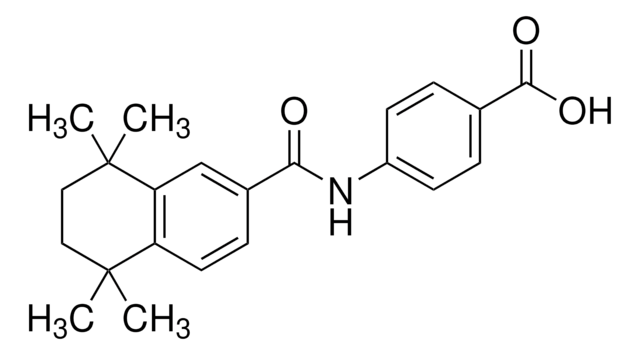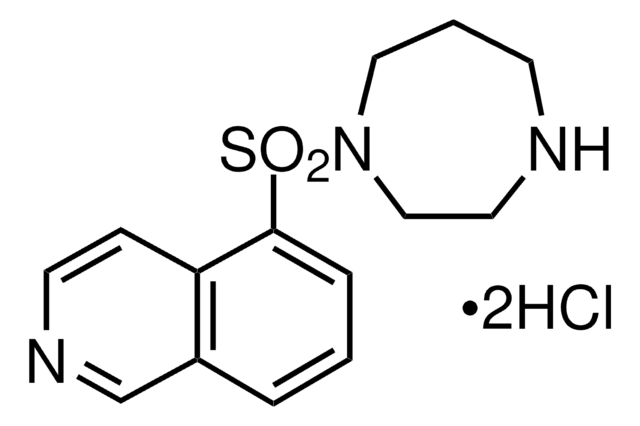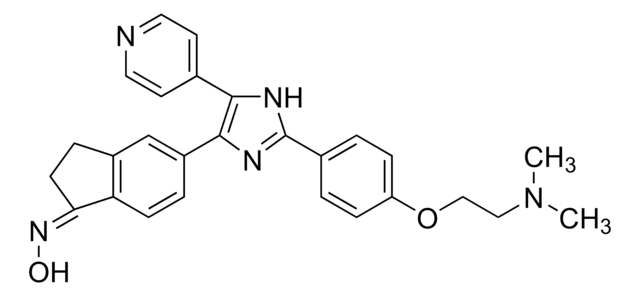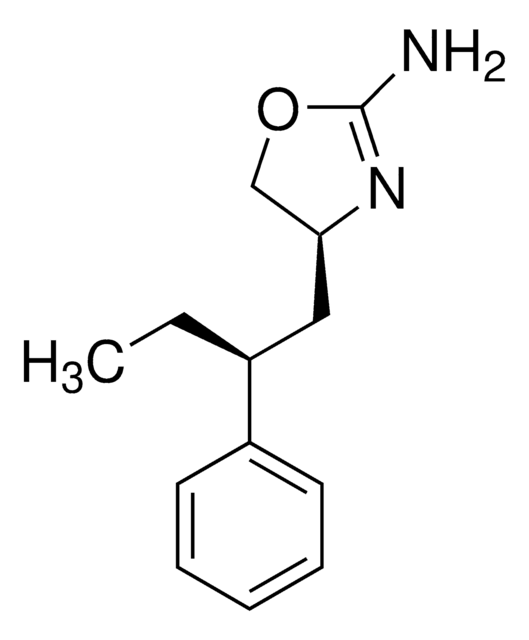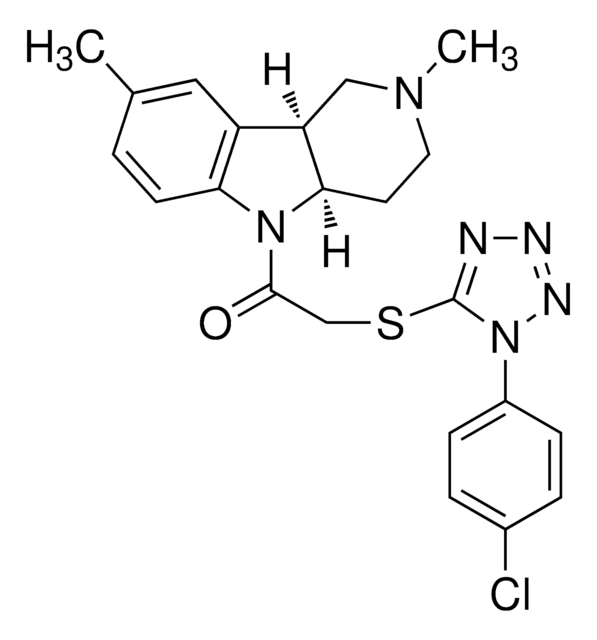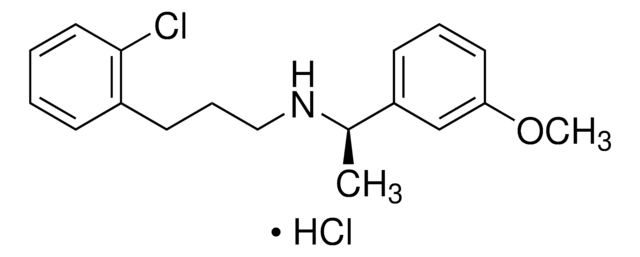559304
Anti-SAPK/JNK Rabbit pAb
liquid, Calbiochem®
About This Item
Productos recomendados
biological source
rabbit
Quality Level
antibody form
affinity isolated antibody
antibody product type
primary antibodies
clone
polyclonal
form
liquid
does not contain
preservative
species reactivity
mouse, rat, human
manufacturer/tradename
Calbiochem®
storage condition
OK to freeze
avoid repeated freeze/thaw cycles
isotype
IgG
shipped in
wet ice
storage temp.
−20°C
target post-translational modification
unmodified
Gene Information
human ... MAPK8(5599)
General description
Immunogen
Application
Immunocytochemistry (1:200)
Warning
Physical form
Reconstitution
Analysis Note
UV treated HEK293 cells
Other Notes
Coso, O.A., et al. 1995. Cell81, 1137.
Derijard, B., et al. 1994. Cell76, 1025.
Kyriakis, J.M., et al. 1994. Nature369, 156.
Hibi, M., et al. 1993. Genes Dev.7, 2135.
Kyriakis, J.M. and Avruch, J. 1990. J. Biol. Chem.265, 17355.
Recommended Protocol for Immunoblotting
Solutions and Reagents
•Transfer Buffer: 25 mM Tris base, 0.2 M glycine, 20% methanol, pH 8.5.
•SDS Sample Buffer: 62.5 mM Tris-HCl, pH 6.8, 2% SDS, 10% glycerol, 50 mM DTT, 0.1% bromphenol blue.
•10X TBS (Tris-buffered saline): To prepare 1 liter, 24.2 g Tris base, 80 g NaCl, adjust pH to 7.6 with HCl. Dilute 1:10 for use.
•Blocking Buffer: 1X TBS, 0.1% Tween®-20 detergent with 5% non-fat dry milk.
•Primary Antibody Dilution Buffer: 1X TBS, 0.1% Tween-20 detergent with 5% BSA
•Wash Buffer (TBST): 1X TBS, 0.1% Tween-20 detergent
Blotting Membrane
Nitrocellulose or PVDF membranes may be used.
Protein Blotting
A general protocol for sample preparation using 2x106 293 cells per well in a 6-well plate is as follows:
1. Aspirate media. Treat cells by adding fresh media containing regulator for desired time.
2. Aspirate media from cultures; wash cells with PBS; aspirate.
3. Lyse cells by adding 100 µl of SDS Sample Buffer and immediately scrape the cells off the plate and transfer the extract to a microfuge tube. Keep on ice.
4. Sonicate for 2 s to shear DNA and reduce sample viscosity.
5. Heat sample to 95-100°C for 5 min. Cool on ice.
6. Microcentrifuge for 5 min.
7. Load 20 µl onto SDS-PAGE gel (10 cm x 10 cm).
8. Electrotransfer to nitrocellulose membrane.
As controls, we recommend using 20 µl lysate from UV treated HEK293 cell.
Membrane Blocking, Gel and Antibody Incubations
1. After transfer, wash membrane with 25 ml TBS for 5 min at room temperature.
2. Incubate membrane in 25 ml Blocking Buffer for 1-3 h at room temperature or overnight at 4°C.
3. Wash 3 times for 5 min each with 15 ml TBST.
4. Incubate membrane and primary antibody (at the appropriate dilution) in 10 ml Primary Antibody Dilution Buffer with gentle agitation overnight at 4°C.
5. Wash 3 times for 5 min each with 15 ml TBST.
6. Incubate membrane with conjugated secondary antibody at the appropriate dilution in 10 ml Blocking Buffer with gentle agitation for 1 h at room temperature.
7. Wash membrane as in step 5.
Detection of Proteins
Chemiluminescence.
Legal Information
¿No encuentra el producto adecuado?
Pruebe nuestro Herramienta de selección de productos.
Storage Class
10 - Combustible liquids
wgk_germany
WGK 1
Certificados de análisis (COA)
Busque Certificados de análisis (COA) introduciendo el número de lote del producto. Los números de lote se encuentran en la etiqueta del producto después de las palabras «Lot» o «Batch»
¿Ya tiene este producto?
Encuentre la documentación para los productos que ha comprado recientemente en la Biblioteca de documentos.
Nuestro equipo de científicos tiene experiencia en todas las áreas de investigación: Ciencias de la vida, Ciencia de los materiales, Síntesis química, Cromatografía, Analítica y muchas otras.
Póngase en contacto con el Servicio técnico